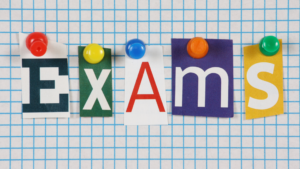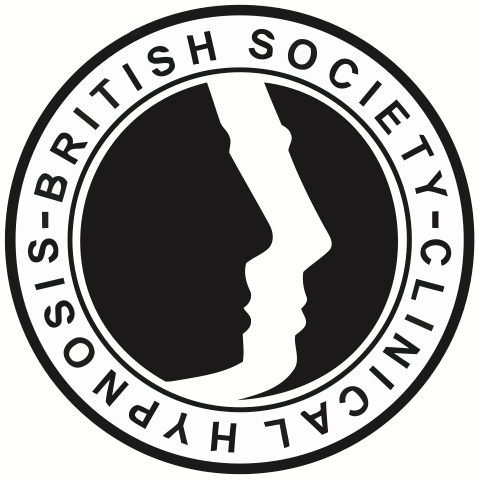Ah… exam season, I remember it well, and am reminded of the pressure it puts on students every year since, as I see an ever growing number of people young and old coming to clinic for help during revision and exam season. I would like to share a few tips on exams – a survivors guide.

Very often a lack of self-confidence and control are the Achilles heel of exam stress, which leads to many students feeling frustrated and overwhelmed. If a student is overwhelmed with the amount of content they’re having to absorb, they may discard important pieces of information just because of the overload.
So what can be done to ease the burden of study and make learning, retaining and retrieving information easier and less stressful?
One of the first things I learned while studying psychology was how information is processed and recorded to memory. “Memory is the means by which we draw on our past experiences in order to use this information in the present’ (Sternberg 1999)
When information arrives into our memory system it needs to be changed into a form that the system understands so that it can be stored.
There are three main ways in which information can be encoded into our memory:
- Visually (in the form of pictures)
- Acoustically (hearing/ sound)
- Semantic (the meaning of the word or phrase)
For instance if you look at or write down a telephone number and want to remember it, you are using visual encoding, when you’re repeating it to yourself, you’re using acoustic coding (sound).
When information is taken in and encoded it’s stored in the short term memory. Practice (rehearsal) is now required to move the information into the long term memory.
Memory retrieval is important in virtually every aspect of our daily lives, from remembering where you parked your car to learning new skills.
How long information can last in the long-term memory is a bone of contention, however it’s widely believed that once information has made its way to our long term memory, it may well be stored indefinitely.
Think of the older people who remember specific details of their childhood or professional people who are expert in their field. We are all constantly learning throughout our lives. Everything we see, touch, smell, taste or hear is passed through to our memory and (if it’s important enough to us) passes through to the long term memory and is available to us forever.
And so this (in simplified terms) is what I always remind my student clients of.
If you’ve learned it and rehearsed it, it’s all there for the taking.
Now a certain amount of stress while preparing for exams is not always a bad thing as it can help motivate revision. But for every student who thrives on stress, there’s another who’ll have a melt-down.
So how can you help yourself beat stress, power through revision and pass exams comfortably?
Here are a few tips:
Self-hypnosis, Hypnotherapy and Mindfulness.
Self-hypnosis
This can be done anytime, anywhere, and is a great way to combat stress, re-energise and bring yourself out of a negative frame of mind.
- Breathe slowly, deeply and evenly from your stomach, not your chest. Breathe in for a count of 7 and out for a count of 11. Diaphragmatic breathing is one of the easiest ways to trigger your vagus nerve and create a relaxation response that counters the panic and anxiety of the fight-or-flight response.
- With every exhale, say a word that represents the way you want to feel. For example, say “calm” or “focused”.
- Begin to use your creative imagination to visualise a comforting image or memory that makes you feel deeply happy or centred. Re-live it, make it bigger, brighter, more vibrant, see the sights, hear the sounds, smell the aromas, feel the temperature… is it warm or cold?
- Add your own elements. Add to the surroundings or environment to make it even more comforting. Practice this for three to five minutes a couple of times a week, and enjoy the benefits it can bring you.
Clinical Hypnotherapy
Academic performance can be enhanced very effectively with hypnotherapy and there is compelling evidence to support this. It is well documented that our brains absorb more than we are consciously aware of and hypnosis, when professionally applied, can help us make far greater use of our vast potential for learning.
Hypnotherapy can provide the means in which to remove blockages and inhibitions often caused by bad learning experiences in the past, and eradicate negative programming that may have led to low expectations of success. Studying, learning, memory and focused concentration can be greatly improved in both children and adults with professional hypnotherapy.
The process of studying and accelerated learning is enhanced by developing improved concentration techniques, improving not only concentration but comprehension, forming strategies for improving memory and creativity and helping to solve theoretical problems or real-world problems, using the knowledge already attained.
Mindfulness
Practicing mindfulness helps students to tap into their own inner resources, enabling them to remain calm, sustain attention and focus.
Being mindful helps us to pay attention to the present moment through simple breathing and meditation practices. These practices increase awareness of thoughts and feelings and can reduce stress and anxiety, boost levels of attention and concentration and… there is a growing body of evidence showing that being mindful is measurably effective.
In my clinical practice I include a great deal of mindfulness. It’s something that my clients enjoy and benefit from not only prior to exams and in readiness for revision, but throughout many areas of their lives.
For more information on how you can increase levels of concentration, self-confidence and calm and find out more about a survivor’s guide to exam season, get in touch today.
https://gailmarrahypnotherapy.com/contact/
You can buy my book on Amazon and through all good bookstores: https://www.amazon.co.uk/Health-Wealth-Hypnosis-beautiful-life-ebook/dp/B0891QLZG2/ref=tmm_kin_swatch_0?_encoding=UTF8&qid=&sr=








